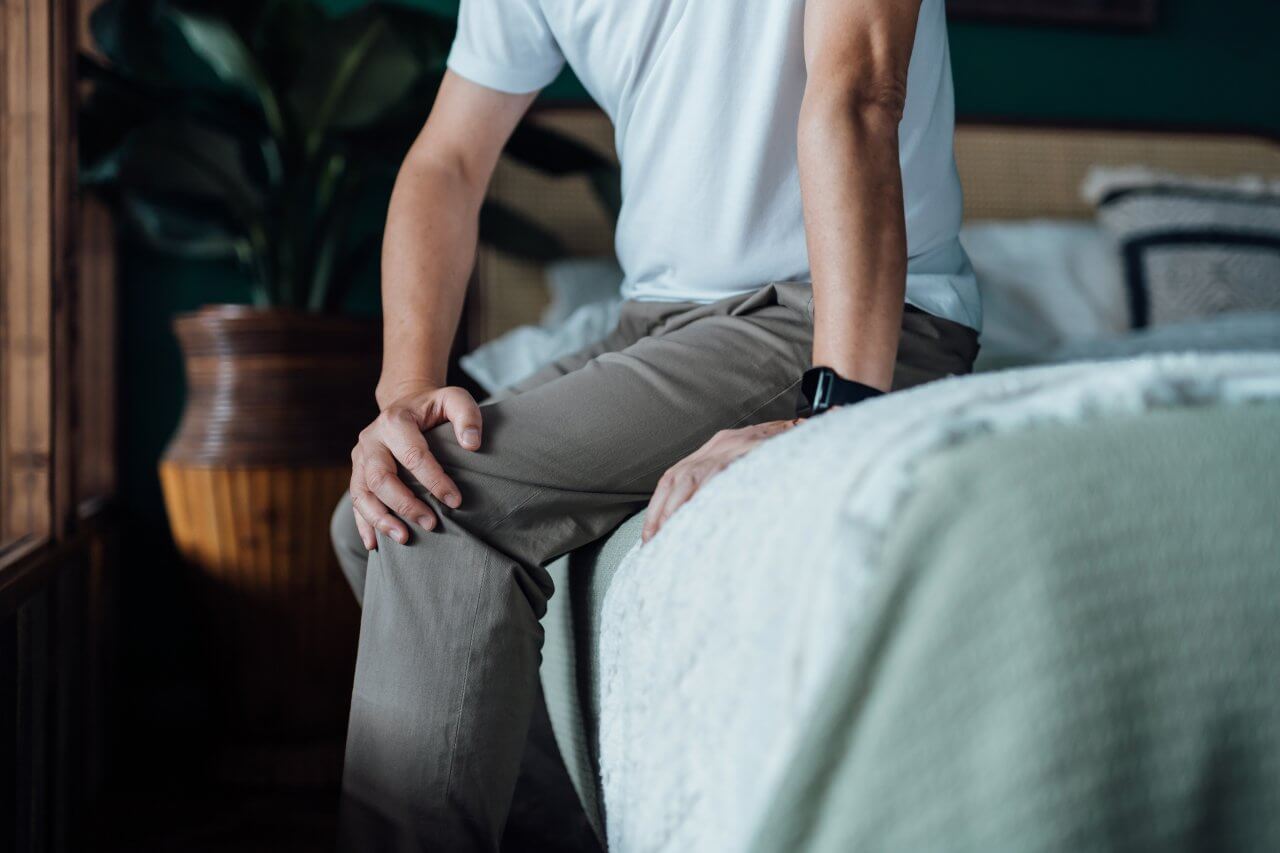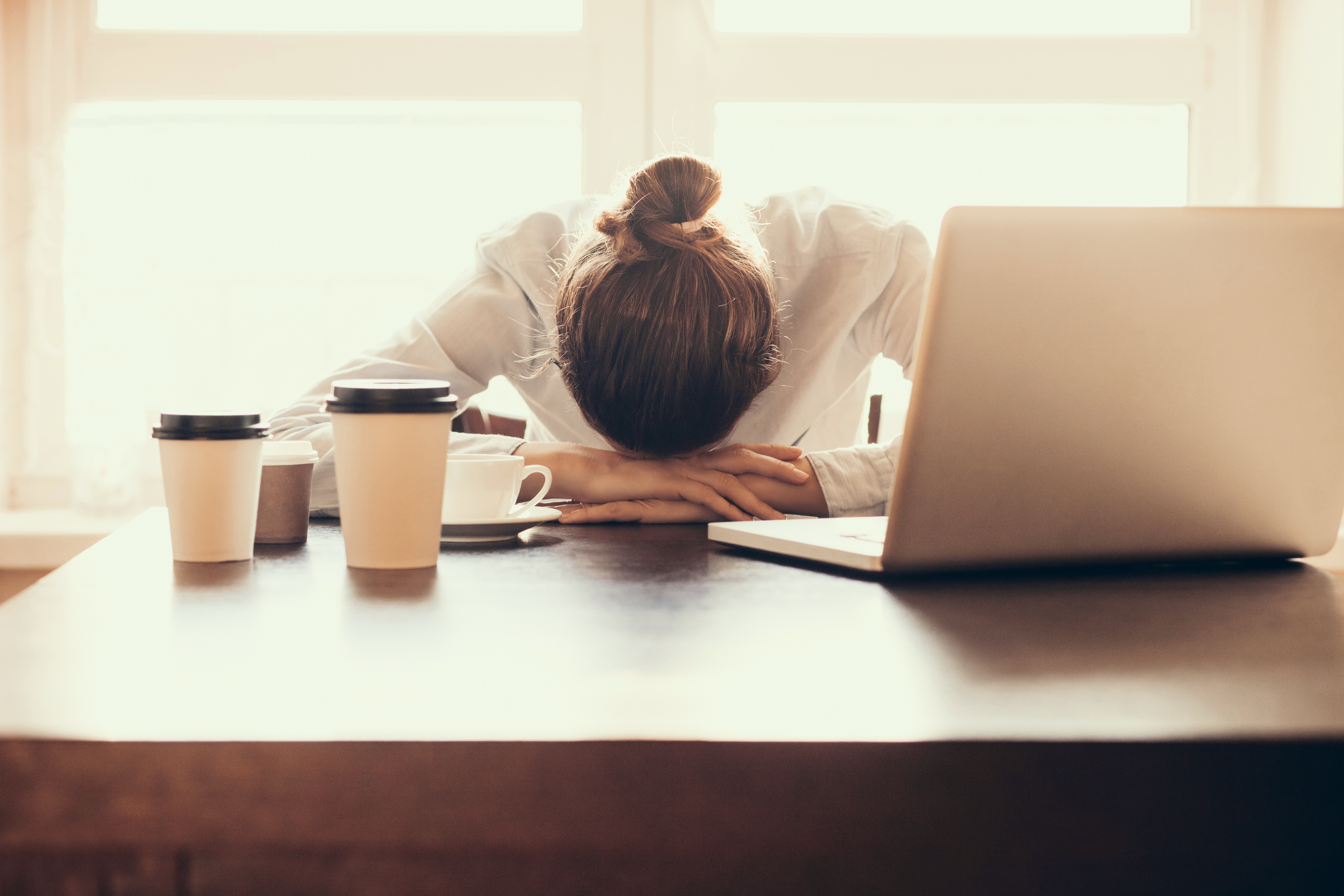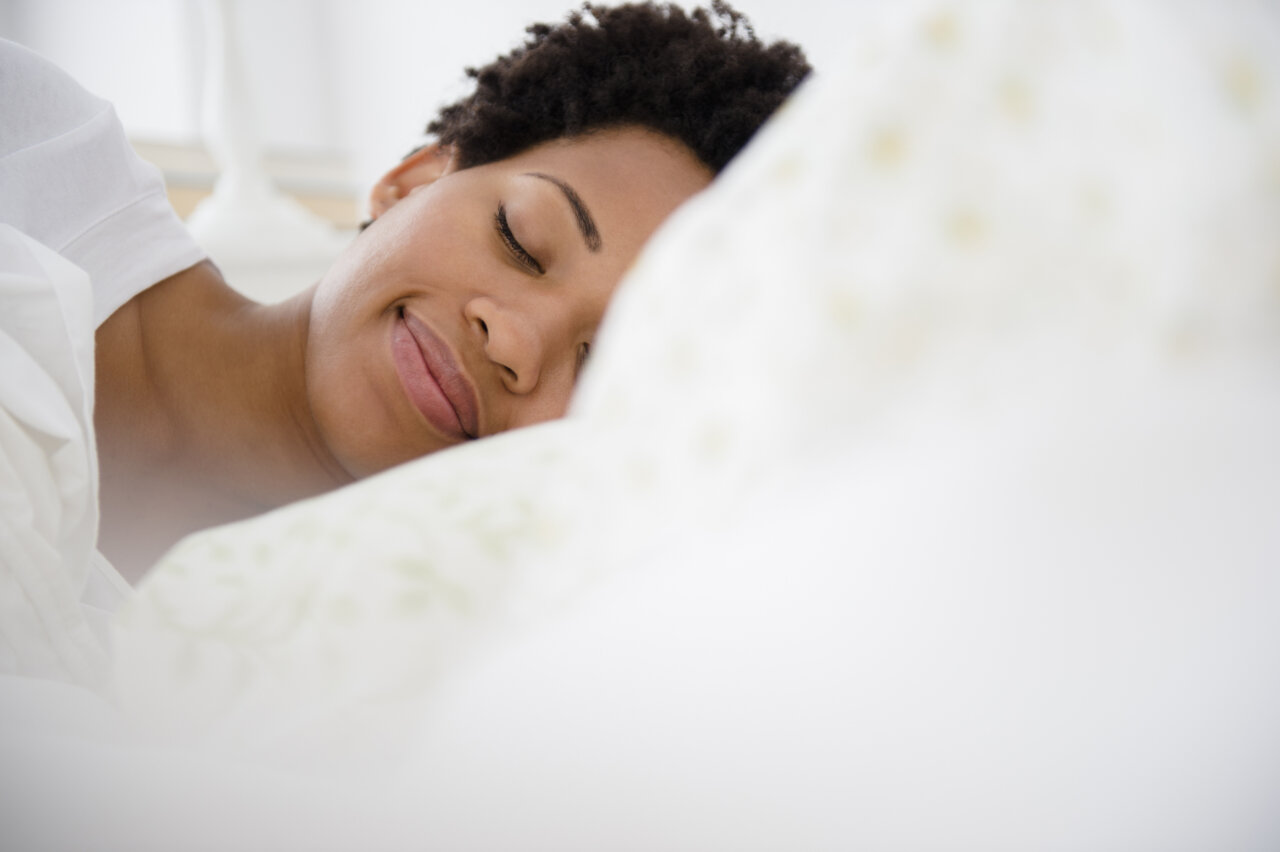What Causes Leg Cramps at Night?

Muscle cramps are involuntary contractions of the muscles that can last from a few seconds to several minutes, with soreness that may remain for days. Depending on the location and intensity of the contraction, these cramps can be annoying to excruciating. They tend to be especially painful in the leg muscles.
Sometimes referred to as getting a “charley horse,” leg cramps can occur at any time of day, although 75% of reported leg cramps happen at night. Nighttime or “nocturnal” leg cramps can be frustrating as they may wake you up and make it difficult to fall asleep.
Fortunately, leg cramps are generally harmless and don’t cause damage to the muscles, bones, or other structures involved. Nevertheless, they’re an event that people want to avoid or stop as quickly as possible.
Who Has the Highest Risk of Leg Cramps?
Anyone can experience leg cramps. However, they’re more common in people who are 60 or older. One reason for the increased frequency in older adults is that tendons, which connect muscles to bones, get shorter with age.
Leg Cramp Triggers
Leg cramps are often “idiopathic,” meaning there’s no known reason that they occur. Researchers speculate that their potential causes include:
- Excessive high-intensity exercise
- Restriction of blood flow to the muscles
- Stress
- Dehydration
- Random nerve firings
- Side effects of several types of medications including statins, conjugated estrogens, diuretics, sleep aids, and others
You may increase your risk of leg cramps at night if you:
- Sit for long periods, especially with poor posture.
- Stand for long periods, particularly on concrete floors.
- Overuse the muscles.
How to Stop Leg Cramps Immediately
There are no medications that can instantly relieve leg cramps. But you can take actions like stretching the affected muscle or forcing yourself to “walk off” the kink — even though those actions may seem counterintuitive. You can also shake or massage the muscle.
Some people take over-the-counter pain relievers or apply heat or cold to the affected area to address the pain. The most effective response for you may include some or all these actions.
How to Prevent Leg Cramps at Night
The best way to deal with leg cramps at night is to prevent them in the first place. While no preventative measure can guarantee you won’t experience a leg camp, these actions may help reduce the risk:
- Stay hydrated during the day by drinking six to eight tall glasses of water.
- Exercise regularly.
- Stretch your leg muscles before and after exercising.
- Reduce your intake of caffeine and alcohol.
- Wear well-fitting, supportive shoes.
- Stretch your leg muscles gently before you go to bed.
- Try a little light exercise before bedtime, like walking on a treadmill.
- Change your sleeping position or the weight of your bedding if needed to ensure you can keep your toes straight.
- Talk with your doctor about alternative medications if yours are associated with leg cramps.
Leg Cramps as a Symptom of Health Issues
Although leg cramps are typically harmless, they can be a symptom of several serious health issues, including:
- Diabetes
- Cardiovascular disease
- Parkinson’s disease
- Peripheral artery disease
- Amyotrophic lateral sclerosis (ALS or Lou Gehrig’s disease)
- Osteoarthritis
- Kidney failure
You should contact your doctor if your leg cramps are severe, frequent, or worsening. You should also talk with them if you experience numbness or swelling in your legs, notice changes in the skin of your legs, or develop muscle cramps in other parts of your body.
If a leg cramp persists for more than 10 minutes or the pain is unbearable, you should seek emergency medical care.
Learn More About Leg Cramps from Baptist Health
Leg cramps, especially at night, can adversely affect your quality of life. Although there’s no cure, your doctor can help you develop a strategy for minimizing their occurrence and intensity. Contact your Baptist Health physician to schedule an appointment.
If you don’t have a doctor, check out our online provider directory.



